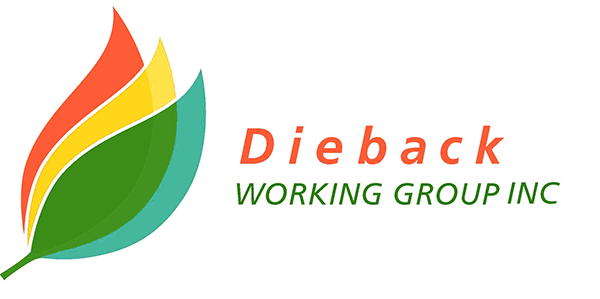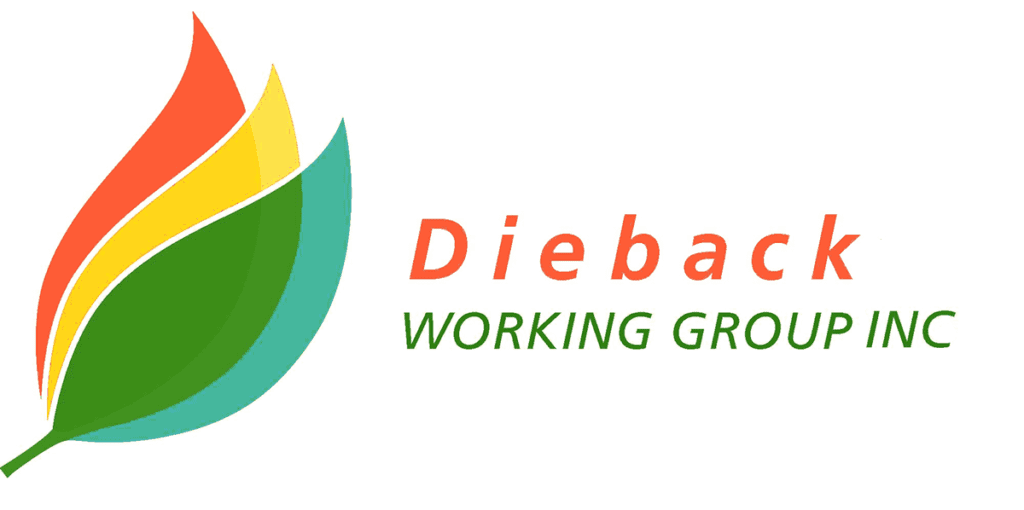Dieback-free basic raw materials (BRM)
This project will facilitate the development of marketable dieback-free basic raw materials, using innovative and scientifically validated methods of eliminating the pathogen Phytophthora cinnamomi from commonly infested substances such as laterite gravel.
Phytophthora Dieback is a key threatening process for over 230 EPBC Act-listed species. One of the major vectors for spread of dieback is the movement of infested BRM, which include gravel, sand, clays, and limestone. A key BRM use which presents dieback risk to natural landscapes is roadbuilding, for which over 8 million cubic metres of laterite gravel is used across WA alone each year.
This project received grant funding from the Australian Government Saving Native Species Program, for innovative projects, including new technologies, methods and tools, to reduce threats to threatened species and ecological communities. DWG Inc.’s project partners include the Department of Biodiversity Conservation and Attractions WA, Main Roads WA, Murdoch University, Binalup Aboriginal Corporation, Heidelberg Materials and contractors Culford Agri Industry and ArborCarbon.
For more information on the history of Metham Sodium trials for Basic Raw Materials (BRM) in Western Australia, view our history page here.

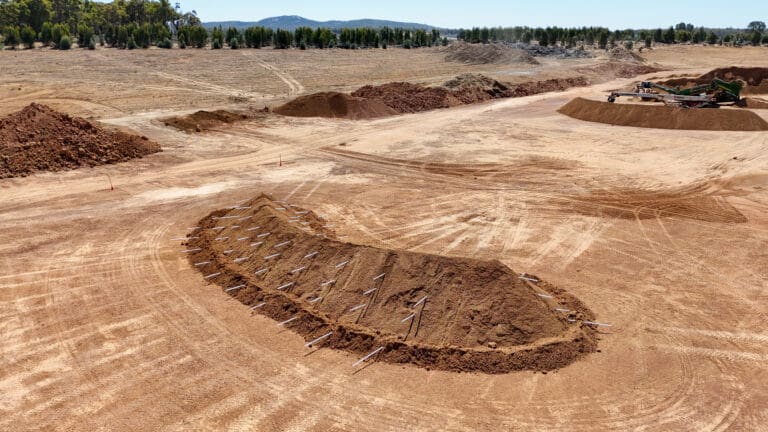
Trial site at Culford Quarry, 2024
Green Card training
Green Card Training (Phytophthora Dieback Hygiene) offered by the Dieback Working Group is recognised as the gold standard in environmental biosecurity hygiene training by WA government authorities. This training equips participants with the skills and knowledge you need to manage your risk of spreading Phytophthora Dieback on-ground. Many industry employees are also now required to complete training before commencing work on DBCA managed lands.
DWG Green Card Trainees who successfully complete the course receive the skills and knowledge to be able to understand the nature of the plant disease Phytophthora Dieback, how it is managed and what steps they need to take to ensure the disease isn’t spread through their in-field activities. Trainees complete the course with the skills for completing a clean-down of a vehicle or piece of equipment relevant to their work practices.
Find out more about Green Card Training here.
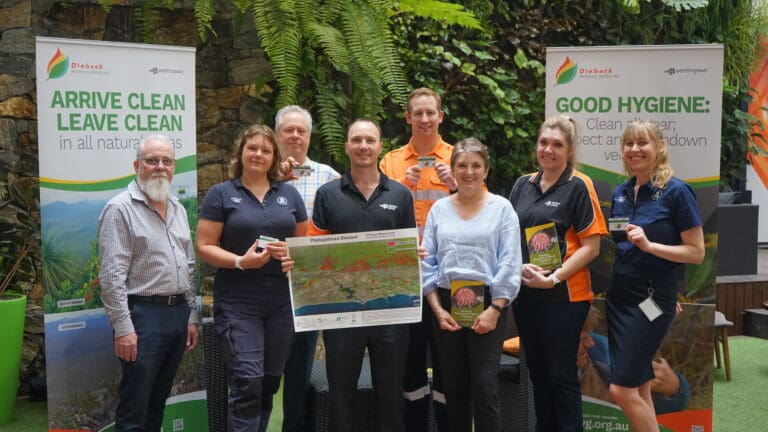
Discovering Dieback Schools Program
Discovering Dieback is an environmental conservation theme program for upper primary that teaches about Western Australian ecosystems and invasive species that threaten them with a focus on the plant disease Phytophthora Dieback.
It all began with a group of concerned teachers and students at Armadale Primary School and has developed over the years with funding from the Government of Western Australia through the State Natural Resource Program to become an award-winning education program. The program is currently under redevelopment to keep in alignment with the latest curriculum, with hopes to return to schools in 2025/26.
Teaching primary school students about Phytophthora Dieback is one of the most important ways we can educate the community about this devastating plant disease.
The Discovering Dieback Education program consists of the following areas:
- A professional event for teachers including lesson plans
- 8 key lessons delivered to students by teachers across one term of the year six curriculum
- A DWG officer-delivered in-school visit or external field trip for students
Opportunities are available to fund Dieback Busting field days, a great family event for Dieback Education, in your local community.
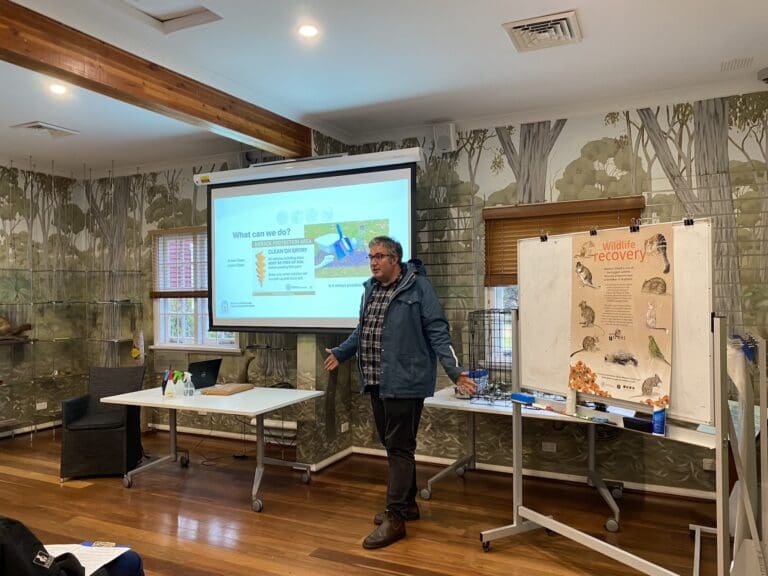
Dieback Unearthed
Delivered as a partnership between the Dieback Working Group and Binalup Aboriginal Corporation, ‘Dieback Unearthed’ represents a step forward in delivering effective education and generating positive behaviour change for environmental biosecurity hygiene.
At its heart, the project is a co-ordinated education and events campaign on Phytophthora Dieback which will target multiple key sectors. The project’s primary objective is to bolster awareness, knowledge, and capacity in stakeholders surrounding the biodiverse Fitzgerald River National Park; one of the last dieback-free wildernesses in southwest WA. Important information on generating positive behaviour change will be published for adoption by the wider Dieback management community.
This project is supported by funding from the Western Australian Government’s State NRM Program and received grant funding from the Australian Government.


other events
- The conference of the Ecological Society of Australia (ESA 2024), Melbourne, Monday 9th December 2024 – Symposium: Phytophthora Dieback: Beyond Immediate Impacts, Mia Townsend
